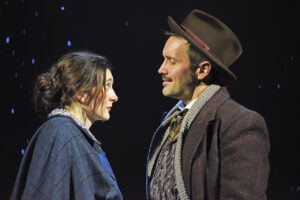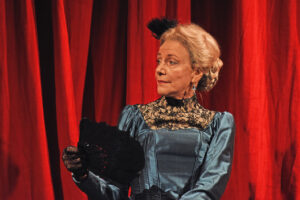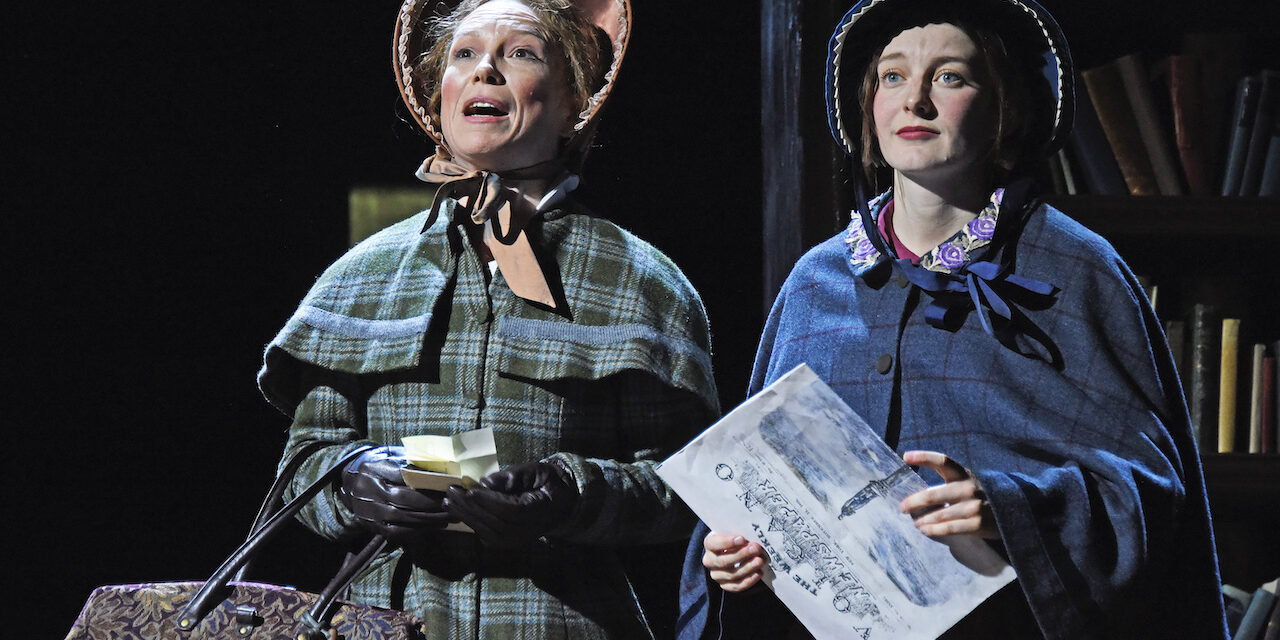
15 – 19 April
First published in two volumes in 1868 and 1869, Louisa May Alcott’s coming-of-age novel has become one of American literature’s most endearing and enduring stories. Set against the backdrop of the American Civil War, Little Women, as its original title Meg, Jo, Beth and Amy suggests, follows the lives, loves and aspirations of the four March sisters. Teetering on the brink of poverty due to the financial imprudence of their father, now away atoning as an Army chaplain in a Civil War which looms over the narrative, the girls must find their own paths, roles and identities in life. This heavily autobiographical tale reflects Alcott’s own struggles, both as a woman and as a writer in a patriarchal society, and her attempts to defy conformity.
Director Loveday Ingram’s rendering of Anne-Marie Casey’s vividly authentic 2011 adaptation focuses primarily on the story of the headstrong Jo (Grace Molony) in her attempts to become a successful writer. In doing so, the play sidelines the other sisters’ stories and edits out some of the novel’s subplots: the emotive return of the prodigal, war-scarred father is not explored, for example. This slightly shifted narrative perspective allows Molony to deliver a layered lead performance which captures both the playful exuberance and sibling squabbles of older childhood alongside the vulnerabilities, ambitions and determination of a young female writer seeking to “find her voice” as she moves to New York to become a governess. She is well supported both by Cillian Leneghan as an excellent Laurie in a lengthy first act and by Jack Ashton as Professor Bhaer in the second act.

And while Honeysuckle Weeks gives a solid, if slightly one-dimensional turn as the March matriarch Marmee, it is Belinda Lang who arguably steals the show, and the best comic lines, as the imperious and fearsome Aunt March.

The tale unfolds on Ruari Murchison’s simple but artfully designed stage which fuses the New England exterior – plenty of falling snow and a dozen silver birch trees – with period interiors – Jo’s symbolic ‘scribbling desk’, a well-used multi-purpose chaise longue and some elegant bookcases – allowing the action to move smoothly between the two as the cast move around and between them. Mike Robertson’s largely monochromatic lighting is highly effective, especially in the dramatic ice-skating scene, whilst simple musical refrains on an ever-present piano cleverly punctuate the drama and signify the passing of time whilst simultaneously avoiding the need for set changes.
Alcott’s most celebrated and progressive work explores what the critic Sarah Elbert describes as “a vision of the All-American girl”, embodied in turn by the beauty of the eldest daughter Meg (Jade Kennedy), the spirited and petulant Amy (a feisty Imogen Elliott), the compassion, meekness and calm acceptance of the unlucky Beth (an underused Catherine Chalk) alongside Jo’s ambition and determination. Written at a time when women had little choice or influence in society – the title alludes to this, as well as their transitioning from childhood to womanhood – this heartwarming and inspiring story, whilst very much a product of its time, will arguably find a significance and resonance with a modern and increasingly misogynistic society which continues to grapple with so many of the same prejudices faced by Alcott and her contemporaries. To that end, Little Women, and impressive adaptations such as this, remains an important and influential text.
★★★★☆ Tony Clarke, 16 April 2025
Photo credit: Nobby Clark


